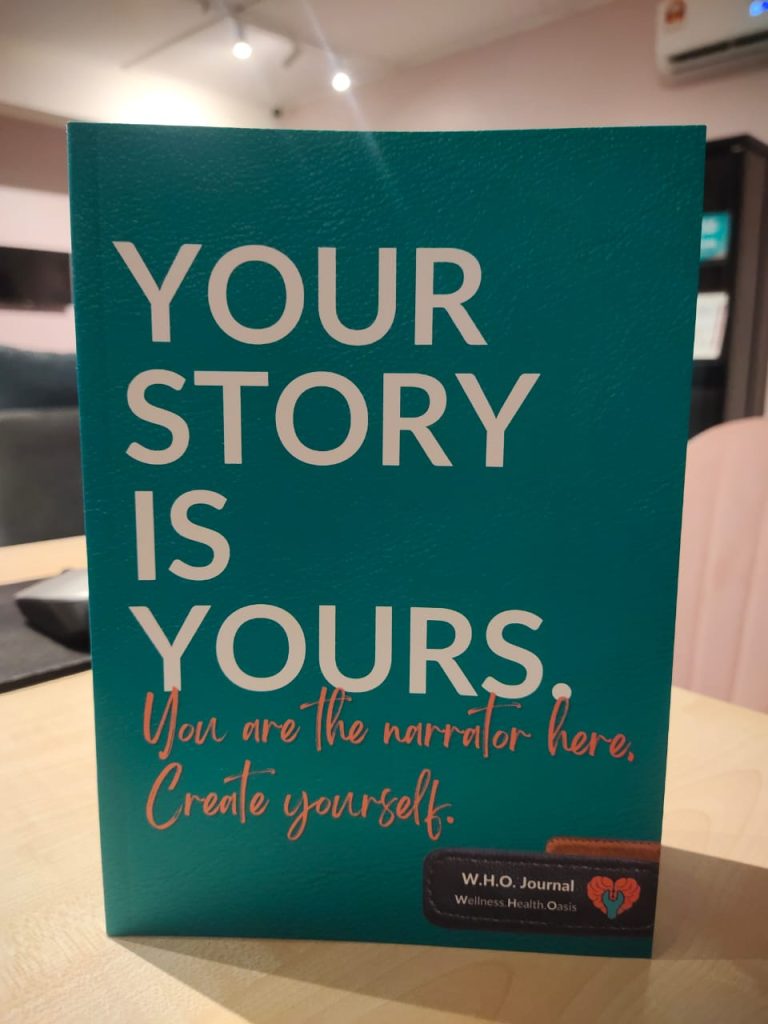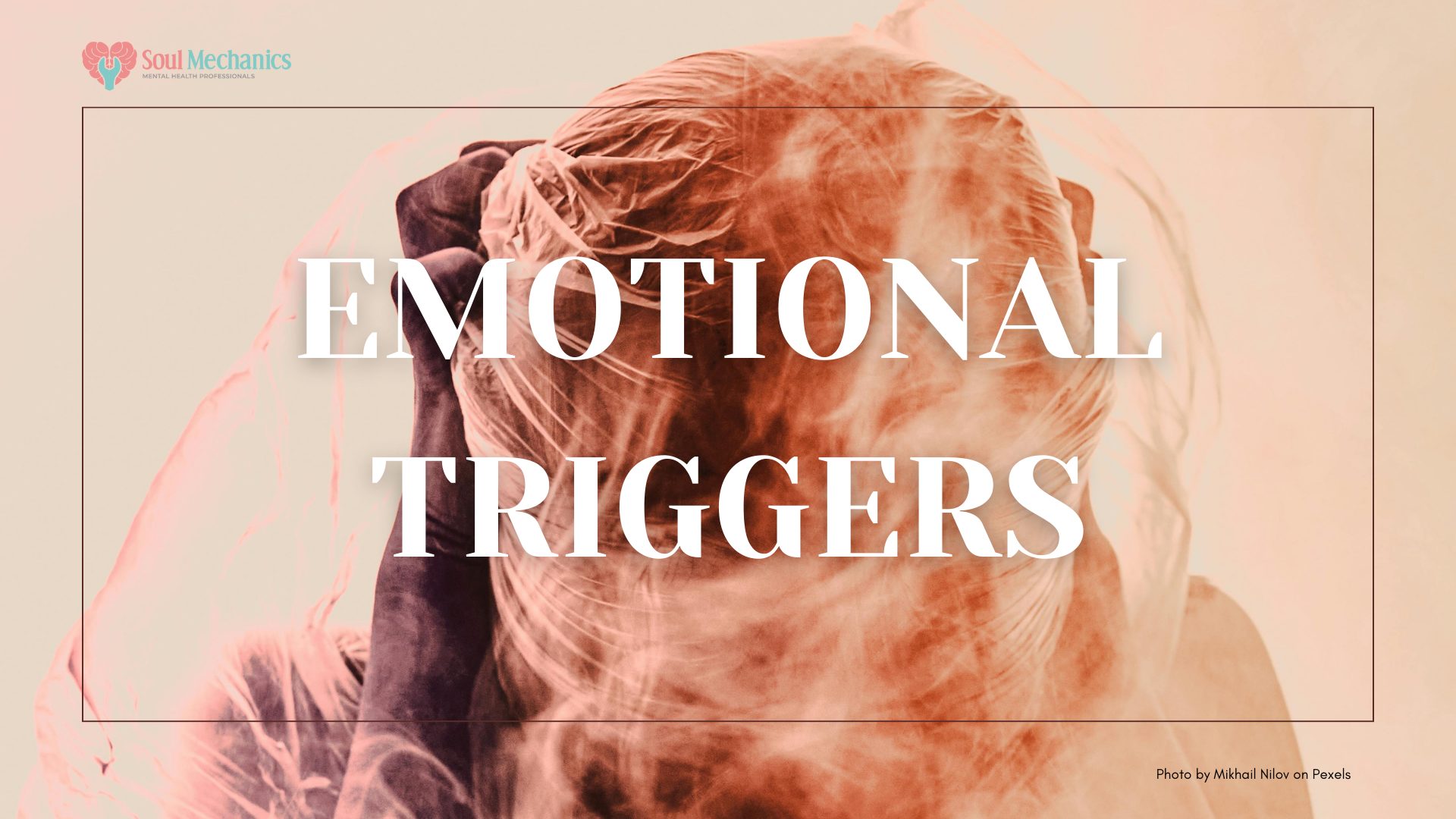Emotional Triggers
Emotional Triggers
Written By: Kelly Chan Jia Li, Clinical Psychologist (MAHPC(CP)00353)
Emotions are like a tapestry of colors that paint our lives in vibrant hues. They guide our decisions, shape our relationships, and define our interactions with the world. But sometimes, without warning, certain experiences get hold of us, setting off emotions that can be overwhelming and confusing. These emotional triggers, though often hidden beneath the surface, have significant power over our thoughts, actions, and relationships. This complex network of triggers can ignite strong unpleasant feelings, often without us even realizing it. For today, let’s delve into the world of emotional triggers.
What are Emotional Triggers?
Imagine you are at a family gathering, enjoying the lively chatter, when suddenly, someone makes a comment about your dating life. In this instant, you feel a surge of defensiveness and anger rising within you. What just happened? You have been triggered.
Emotional triggers are stimuli that evoke strong emotional reactions within us. These reactions can range from joy and excitement to anger and sadness, depending on the individual and the specific trigger. In simpler terms, emotional triggers are like buttons that, when pressed, can stir up strong emotional reactions within us. The “fun” part of these emotional triggers: they can be anything from a specific word or gesture to a particular situation or memory. It is like a constant ticking bomb that can set off at any time. However, the news is, that these triggers often stem from past experiences, ingrained beliefs, and personal vulnerabilities. For example, if you have ever been asked about your love life by others countless times, comments about your love life might trigger feelings of frustration.

If you’re looking for a therapist in Kota Damansara or Ipoh area, you can click here for more information.
Remember, seeking help is not a sign of weakness but strength!
Why Identifying Emotional Triggers Matters?
Self-awareness
Your emotions are like puzzle pieces scattered around. Identifying triggers is like finding the pieces that connect them all together. It helps you make sense of why you react strongly in certain situations. With that, you can develop strategies to regulate them more effectively. For example, if you know that criticism triggers feelings of defensiveness, you can learn to pause and respond calmly instead of reacting impulsively.
Improved relationships
Emotional triggers are like buttons that, when pushed, can cause you to react in ways you might not expect. Identifying emotional triggers can help you navigate conflicts and misunderstandings in your relationships. By understanding your triggers and communicating them to others, you can foster healthier and more empathetic interactions. For example, if you're aware that feeling ignored triggers feelings of insecurity for you, you can express this to your partner or loved ones, helping them understand how their actions affect you.
Personal growth
Identifying emotional triggers is not just about knowing what sets you off—it is about using that knowledge to grow and become more resilient. By addressing underlying issues, you can break free from patterns of behavior that no longer serve you and move towards a more fulfilling life. For example, if you discover that a fear of failure is a trigger for you, you can work on embracing failure as a learning opportunity rather than a threat.

Common Examples of Emotional Triggers
Criticism
Whether it is receiving feedback or hearing judgmental remarks from others, criticism can stir up feelings of inadequacy or defensiveness.
Abandonment
If you have experienced rejection in the past, situations that evoke feelings of being ignored or unloved can trigger intense emotional reactions. For instance, being left out of plans with friends or feeling overlooked in a social setting might activate fears of abandonment.
Failure
The fear of failure is a universal trigger that can provoke feelings of anxiety, shame, or self-doubt. Whether it is falling short of a goal, making a mistake at work, or facing rejection in a romantic relationship, experiences of failure can trigger a range of negative emotions.
Loss
The pain of loss is a deeply emotional experience that can be triggered by various events, such as the death of a loved one, the end of a relationship, or even the loss of a cherished possession. These triggers can evoke feelings of grief, sadness, and longing.
How to Identify Emotional Triggers?
Pay attention to your emotional responses
Take note of your emotional reactions in different situations. When do you feel most strongly? What emotions arise, and how do you typically respond? For example, if you find yourself feeling anxious or defensive when receiving feedback at work, criticism may be a trigger for you.
Reflect on past experiences
Consider your past experiences and how they may have shaped your emotional triggers. Are there particular events or relationships that stand out? For instance, if you have experienced rejection in the past, situations that evoke feelings of being excluded or ignored may trigger similar emotional responses.
Journalling
Journalling can be a helpful tool for identifying emotional triggers. Take some time each day to reflect on your experiences, emotions, and reactions. Writing down your thoughts and feelings can provide insights into the underlying causes of your triggers and help you track patterns over time.

Are you looking for a journal that truly vibes your interest? You can purchase our W.H.O Journal here, to personalize your self-reflection journey. It also comes with a bookmark, containing journal prompts and therapeutic toolkits created by our team of trained mental health professionals.
Get feedback from others
Sometimes, others can offer insights into your emotional triggers that you may not be aware of. Consider seeking feedback from friends, family members, or colleagues about your emotional reactions and patterns of behavior. Their observations may help shed light on blind spots or patterns that you had not noticed.
If you have difficulties identifying your emotional triggers, feel free to reach out to our Kota Damansara and Ipoh branch for further information. Seeking assistance can be the first stepping stone towards having a better self-awareness of your emotional triggers.
How to Manage Emotional Triggers?
While we may not always have control over the external stimuli that trigger our emotions, we can learn to manage our responses more effectively.
Self-awareness
Start by becoming more aware of your emotional triggers. Pay attention to your body's cues and the thoughts that arise during triggering situations. Notice any patterns or recurring themes in your emotional reactions.
Practice self-care
Take care of yourself physically and emotionally. Eat well, exercise, get enough sleep, and engage in activities that bring you joy and relaxation. Self-care is like fuel for your emotional well-being, helping you build resilience against triggers.
Develop coping strategies
Create your own toolkit of coping strategies to help you navigate triggering situations. It could be going for a walk, talking to a friend, or practicing relaxation techniques like deep breathing.
Communicate effectively
If you are feeling triggered in a relationship, communicate your needs to the other person. Let them know how their actions or words are affecting you and what you need from them to feel better.

Conclusion
Emotional triggers are a natural part of the human experience. By gaining insight into your triggers and developing effective coping strategies, you can navigate your emotional landscape with greater self-awareness. Remember, it is okay to feel triggered—it is how we respond to those triggers that make all the difference. So, take a deep breath, lean into your emotions, and remember that you have the power to choose how you react.
If you enjoyed reading this, why not broaden the horizon of knowledge by learning about "Emotional Numbness Coping: Ways to Cope With It?"?
You can read the blog here.
For more content related to mental health do follow us on our official Instagram.

